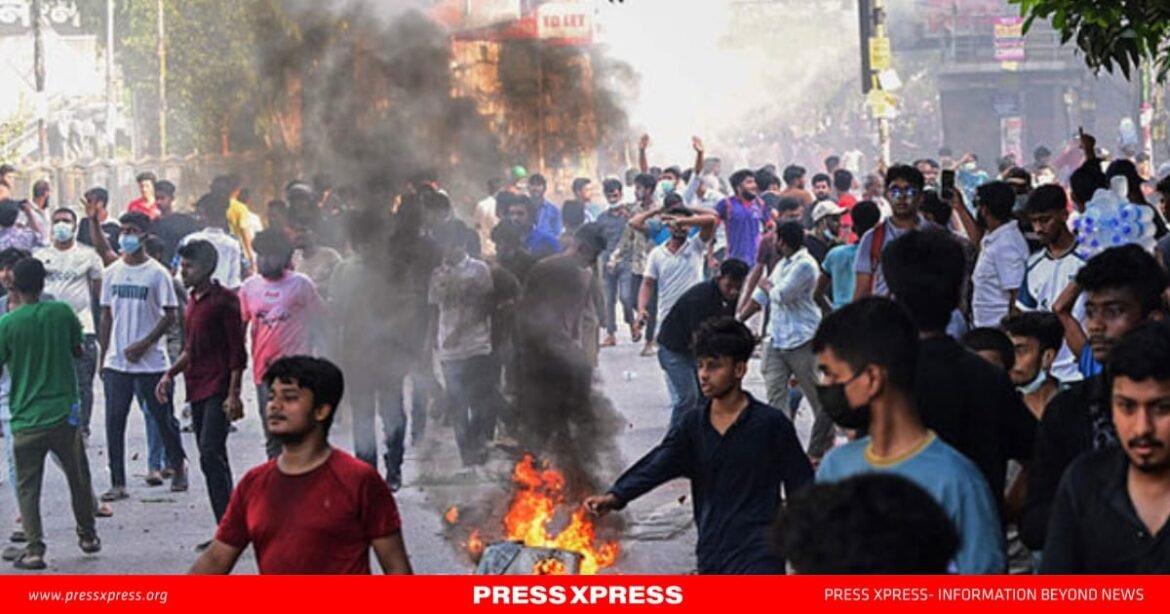(…from previous part)
Yunus-Led Interim Government Seeks to Erase the Legacy of Bangladesh’s Liberation War
The Yunus-led interim government in Bangladesh appears to be systematically dismantling the country’s Liberation War legacy, undermining the very foundation of its identity as a sovereign nation born out of a brutal war of independence in 1971. Through deliberate actions and ideological shifts, this administration has shown a clear intent to rewrite history, erase the contributions of Sheikh Mujibur Rahman, and steer the nation toward narratives that align with the interests of anti-liberation forces, including Pakistan.
One of the most alarming signs of this shift came shortly after August 5, when student agitators, bolstered by infiltrators with apparent political backing, vandalized statues of Bangabandhu Sheikh Mujibur Rahman across the country. The targeting of these symbols of the nation’s independence struggle is more than vandalism—it is an attack on the collective memory of a country that fought valiantly to free itself from Pakistani tyranny. Despite public outrage, the interim government remained conspicuously silent, signaling tacit approval.
The reshaping of history became evident on September 2, when interim government advisor Mahfuz Alam, after meeting with Pakistan’s High Commissioner to Bangladesh, Syed Ahmed Maroof, openly stated, “For the Awami League, 1971 was considered ‘the last chapter of history.’ However, we view it as a continuation of history. We want to resolve the 1971 issue with Pakistan.”
This chilling remark reflects an ideological departure from the Awami League’s long-standing firm stance on justice for the atrocities committed by the Pakistani military during the Liberation War. The actions of the interim government, particularly under Yunus’s administration, raise significant questions about this shift. Notably, the government’s decision to allow Pakistani nationals and ships entry into Bangladesh without significant scrutiny marked a stark deviation from the historical policies that upheld the memory and accountability of 1971.
These decisions not only ignored the sensitivities of the Bangladeshi people but also signaled a willingness to overlook the unresolved grievances stemming from the Liberation War. Such measures, coupled with Pakistan’s enthusiastic response to the regime change in Dhaka, further illustrate this ideological realignment. Islamabad’s announcement of visa-free travel for Bangladeshis and the resumption of direct flights were hailed as diplomatic victories by Pakistan, highlighting the apparent thaw in bilateral relations under the interim government.
This growing alignment risks undermining the principles of justice and historical accountability that have been at the core of Bangladesh’s identity post-1971. By adopting a more conciliatory tone toward Pakistan, the interim government appears to distance itself from the legacy of justice that the Awami League has championed for decades.
The erasure of national symbols and narratives associated with the Liberation War is another troubling development. The interim government’s decision to cancel eight National Days, including March 7 and August 15, has sparked widespread condemnation. March 7 commemorates Sheikh Mujib’s iconic speech that called the nation to arms, while August 15 mourns the assassination of Mujib and his family. These dates are inseparable from the identity of independent Bangladesh, and their cancellation is a direct affront to the spirit of 1971. Awami League leaders have rightly described these moves as an attempt to “press the reset button” on Bangladesh’s history, aligning the country’s narrative more closely with Pakistani ideology.
The government has further undermined the legacy of Sheikh Mujib by removing murals and sculptures dedicated to him and refusing to acknowledge him as the “Father of the Nation.” Instead, the interim administration has promoted alternative histories, with officials like Nahid Islam asserting that Bangladesh’s freedom was the result of “collective struggles” rather than Mujib’s leadership. Alarmingly, this government has even chosen to celebrate the birthday of Pakistan’s founder, Muhammad Ali Jinnah, over that of Mujib, marking a dramatic shift in the ideological direction of the state.
These actions have sparked outrage among the public and civil society. Political analysts, like Professor Nazmul Ahsan Kalimullah, have highlighted the interim government’s haste in strengthening ties with Pakistan as evidence of an ideological agenda that seeks to erase the Liberation War’s legacy. Pakistan Prime Minister Shehbaz Sharif’s comment that “what goes around comes around” in reference to the vandalism of Mujib’s statues reveals the opportunistic delight of Pakistan’s leadership at this turn of events.
The ideological realignment has not only weakened Bangladesh’s historical identity but has also emboldened anti-liberation forces within the country. The systematic dismantling of national days tied to the Liberation War, the removal of Bangabandhu’s symbols, and the refusal to recognize his foundational role are stark indicators of a broader attempt to dilute the country’s hard-won independence.
The interim government’s alignment with Pakistan also threatens regional stability. By downplaying the atrocities of 1971 and fostering closer ties with a state that has consistently refused to apologize for its war crimes, the interim administration risks alienating Bangladesh from its historical allies and undermining its sovereignty.
This erosion of the Liberation War spirit has significant implications for Bangladesh’s future. In this pivotal moment, Bangladesh faces a choice: to protect the legacy of its Liberation War and the ideals of independence or to allow its history to be rewritten by forces that seek to undermine its sovereignty. The stakes are clear, and the fight for the soul of the nation is far from over. (…to be continued)


